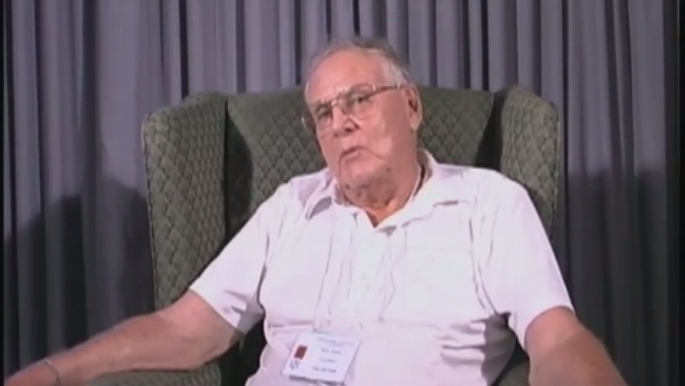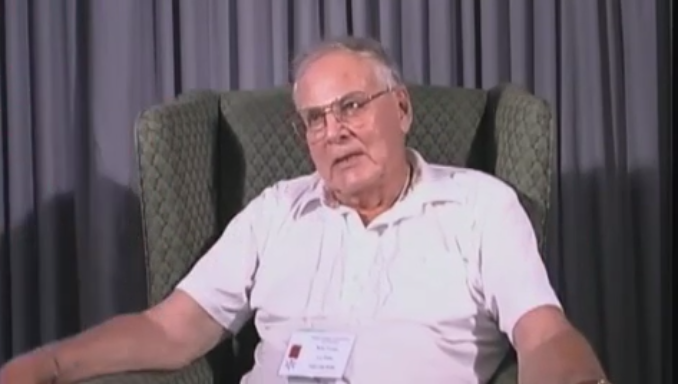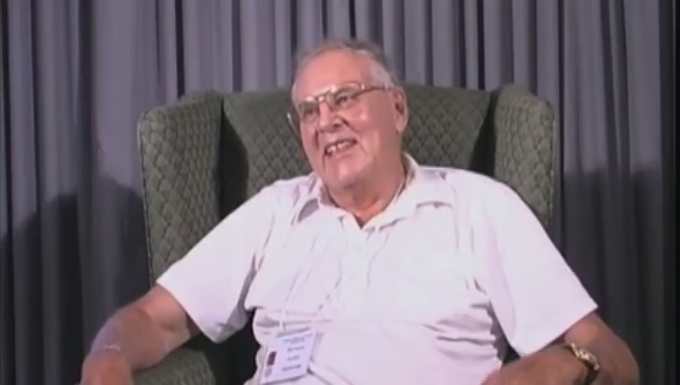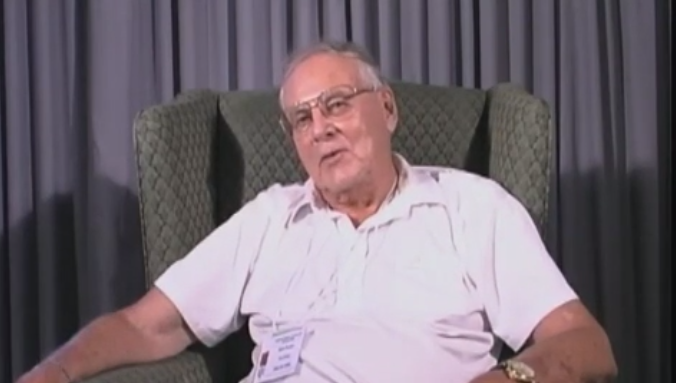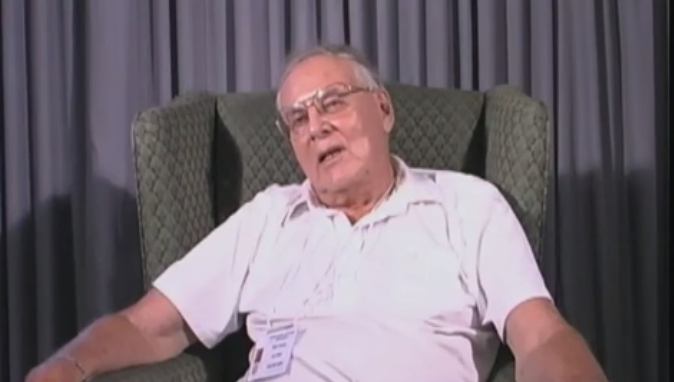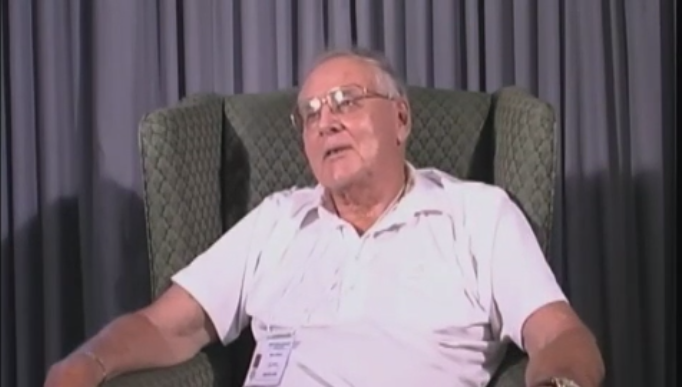Keeping the Japanese From the Germans
Heroes Remember
Keeping the Japanese From the Germans
Transcript
We were, in my period of time, I think, at the latter part of the
war, we had air superiority then. We didn’t have all of the
Zeros in the air, because they didn’t have the fuel. We spent a
lot of time dropping supplies to the 14th Army, and also bombing
strategic positions for the 14th Army, like the one on the
Sittang River bend, where they were held up for a long time.
And we hit that, one morning in the monsoon season,
when they weren’t expecting it, and broke up that encampment.
Interviewer: So you had quite an impact on the course of the war.
Well, it probably did, but you don’t know, I mean, you know,
you find out after the war. When you’re in the war,
you don’t know what the whole strategy is. It’s when you get...
after the war, then you start reading books, and then you have
an idea of why you were there and what you were doing.
Interviewer: If the Japanese had taken India,
it would have changed the course of world history. (Oh, yeah.)
Interviewer:They would have been able to link up with the Germans
It would have changed the world completely. It’s, uh… I’m not
too sympathetic with all of the attitudes taken by some of the
survivors of Hiroshima. You know, that tell you how terrible
it was, and so forth, but it saved a lot of lives, saved mine
anyway. But, they had a chance, they were extremely brutal,
very brutal. I mean, very inhumane in their treatment of anybody
they subjugated, and any prisoners of war. And let’s face it,
they didn’t seem too contrite about what they did in Pearl Harbor
and that was a pretty sneak attack. Killed a lot of people.
Description
Mr. Power talks about the effect of the Burma campaign.
Robert Power
Robert Power was born in 1920, in Yarmouth, Nova Scotia. He grew up in a small fishing village with a one-room schoolhouse. Before enlisting in 1942, Mr. Power studied biochemistry. He served as a pilot in the RAF and spent 26 years in the military. After the war, Mr. Power returned to medicine and became a doctor.
Meta Data
- Medium:
- Video
- Owner:
- Veterans Affairs Canada
- Duration:
- 2:13
- Person Interviewed:
- Robert Power
- War, Conflict or Mission:
- Second World War
- Location/Theatre:
- Burma
- Battle/Campaign:
- Burma
- Branch:
- Air Force
- Units/Ship:
- 159 Squadron
- Rank:
- Lieutenant-Colonel
- Occupation:
- Pilot
Related Videos
- Date modified:



